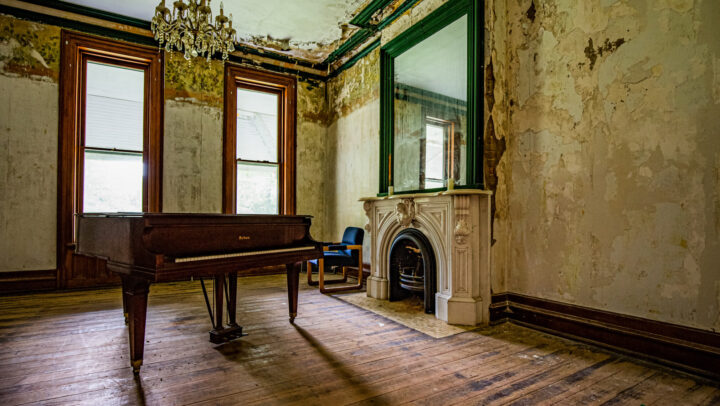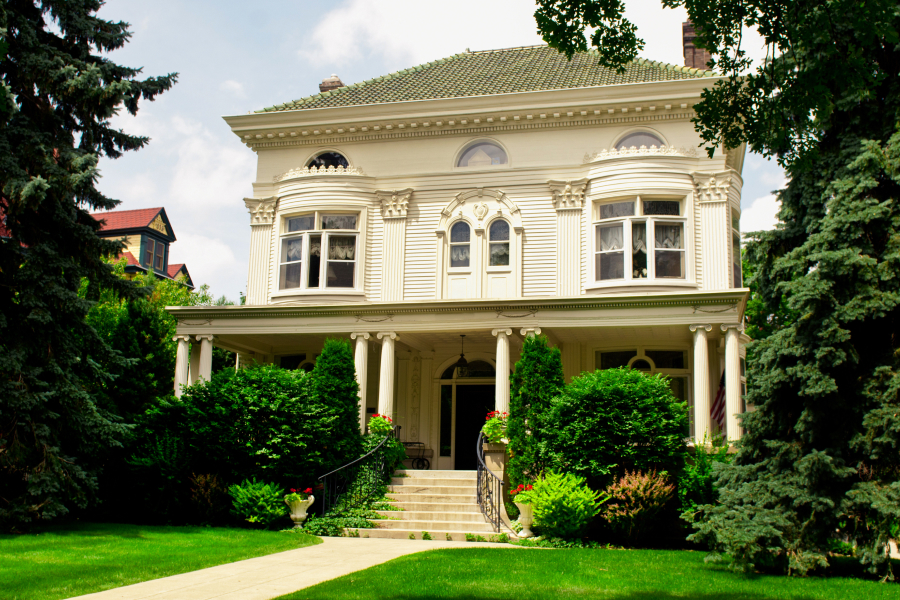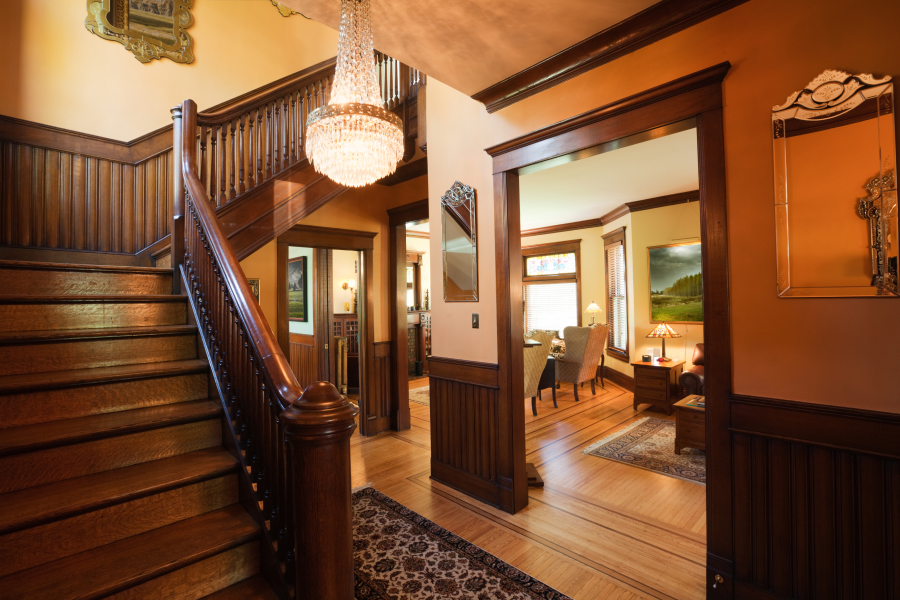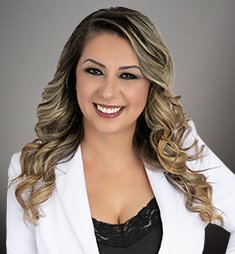- calendar_month October 30, 2023
Haunted houses are labeled as “stigmatized properties,” but they can be highly sought-after.
Marianne Bornhoft was locking up after an open house showing when she heard a faint cry: “Help me!”
Following the cries downstairs to the basement, the veteran real estate agent ended up in front of what appeared to be a concealed door. She pushed on it. It sprang open, and a panicked woman rushed out.
“She told me she went down to look at the root cellar and the door closed behind her,’’ says Bornhoft, who called her husband soon after from the living room to relay what had happened. As she talked, a chandelier in the room began swinging for no apparent reason. And then a bathroom door closed on its own.
“I don’t believe in ghosts,’’ says Bornhoft, “but I do think there are spirits among us. And this house definitely had spirits.”
The Spokane, Washington-based agent and commercial developer, who specializes in historic homes, antiques and estate sales, says she later learned that at least three people had died in the house. Those events made the home a “stigmatized” property — meaning a house that prospective buyers might shun based on an event, such as a murder or suicide, that happened there.
Stigmatized properties can pose challenges for sellers and opportunities for buyers who either don’t believe in ghosts or are more spooked by bidding wars than friendly spirits.
So what do you need to know about homes with a ghostly reputation and the people who buy them?
Do people seek out haunted houses to actually live in?
Absolutely. In a recent Zillow® survey of prospective buyers, 29% said they were more likely to buy a home if it was haunted. Only 33% said that nothing could convince them to buy a house they would have to share with spirits.
“Some people want their house to be haunted,’’ says Noah Leigh, founder of and lead investigator for Paranormal Investigators of Milwaukee, a nonprofit group that has conducted hundreds of investigations since its founding in 2007. “It’s something they see as a point of pride; something fun and interesting.”
Others may be comforted by the idea that a loved one who passed is still present, he says. Or they may be susceptible to suggestions that otherwise innocuous happenings are tied to a tragedy that happened in the home.
“Human psychology runs right through all of us,’’ says Leigh, who has master’s degrees in epidemiology and cell biology.
While some people can’t run fast enough from a stigmatized home, others are willing to risk sharing space with spirits if it means getting a deal on a beautiful space, Bornhoft says.
“In my experience, estates are the best deals, by far,’’ she says. “You can build sweat equity right away. Instead of being worried about buying a haunted house, I’d be worried about buying a house that didn’t have instant equity built into it.”
Aside from the prospect of getting a deal on a house that might otherwise cost a lot more, owning a home with a spooky reputation can bring commercial rewards if the property is marketed to people who thrill at the idea of a supernatural encounter.
And, of course, there would be no shortage of cool stories to scare your friends.

Photo courtesy of Brandon Rugzie of the Paranormal Investigators of Milwaukee
Are there signs that a house might be haunted?
Some people in the real estate industry attest to having other-wordly encounters while others scoff at the notion of ghosts.
“There is no such thing as a haunted house,’’ says Andrew Allen, real estate investor and partner at Barker Hill Realty in Austin, Texas, says. “The only thing more insane than believing in haunted houses is believing in haunted houses and wanting to live in one!”
For the believers, a simple checklist, published by Western University in Ontario, Canada, offers signs any horror movie goer could tick off:
- Creaky floorboards and slamming doors when no one else is in the home
- Sudden drops in temperature unrelated to open windows or vents
- Pets that bark or hiss at “nothing”
- Strange noises unconnected to people or events in the house
- Spotting movement out of the corner of your eye but seeing nothing when you turn
Others have reported foul odors unrelated to cooking, flickering lights, water that turns off and on seemingly by itself, and furniture or objects that appear to move on their own.

How do you determine if a house is haunted?
Paranormal Investigators of Milwaukee, which is staffed by a volunteer group of six science-minded investigators, has developed a protocol for investigating supernatural claims. The group investigates an average of four cases a month, and uses a combination of historical sleuthing, and a slew of equipment to measure moisture, sound and visuals that can take up to a month to examine and sort out.
During their investigations, PIM’s investigators also leave out “trigger objects,” strategically chosen items that an otherworldly presence might be drawn to: a crucifix, a Bible, a deck of cards, holy water or something the suspected spirit might have been connected to when they were alive.
Leigh says most of the “signs” that a house is haunted can be explained by light and shadows, problems with the home’s heating, electric and plumbing systems or foundation/construction issues. Among the culprits identified during the group’s investigations: falling paint chips, reflections from windows, faulty wiring and plumbing unsecured to floor joists.
“We rule out normal explanations before we look at paranormal,’’ says Leigh. “Most of the time, the problems have a normal explanation. It’s more sensational to have three demons in your house than to realize you have a bad (electrical) circuit in your house and you need to replace the breaker.’’
Leigh says investigators find an explanation for “99.999%” of the events they investigate, including pets that seem to bark or hiss at “nothing.” Leigh says animals have extremely sensitive hearing and process visual information differently than humans, so they could be reacting to a pest infestation or even sounds from several blocks away that are not detectable by humans.
But sometimes rational explanations remain elusive.
When they can’t rule out paranormal explanations, the PIM investigators offer a degree of assurance to the living dwellers: “It is PIM’s opinion that there is no intent to harm any of the clients.”
How do they know?
“I’ve done hundreds of investigations at places across the country” says Leigh, “and I’ve never had anything happen to me.”
I think I bought a haunted house: Can I get rid of the ghosts?
Hundreds of groups and societies — some fringe, some so mainstream that they have their own TV shows — offer services to homeowners in finding and removing ghosts. Their methods range from inhaling spirits and exhaling them out over a body of water to saging to reciting prayers or Biblical passages.
Catholic priests routinely conduct exorcisms to expel demons from a home, according to the Catholic News Agency, noting that a demonic infestation would involve reciting a particular prayer, inviting God back into the house, casting out the evil presence, or blessing the home with holy water.
Leigh says it’s important to remember that there is no such thing as a certified expert in paranormal extractions and no uniform standards for evaluating people who advertise or offer ghost-removal services.
He recommends doing in-depth research on anyone offering to remove ghosts or spirits from a home to avoid being ripped off or being driven from your home by fear.
If you think your home is haunted, Leigh recommends keeping a journal for two weeks documenting in detail what you see, when you see it and who else was present when the happening occurred. Study the journal for patterns: Does the event occur at the same time of day? Are the patterns related to weather or temperature? Are there possible structural or maintenance issues at play, such as a leaky roof or misaligned downspout?
If journal entries don’t shed light, it might be time to call a credible investigator to check things out.

What is a seller required to disclose about suspected ghosts?
Real estate law varies by state and city, so ultimately, there isn’t a one-size-fits-all answer when it comes to disclosing information about a home’s reputation as a hangout for spirits.
If you ever publicly claim that a house is haunted, you’re required to share the information with potential buyers, says Allen, the real estate investor. This is due to Stambovsky v. Ackley, a New York Supreme Court ruling commonly referred to as the Ghostbusters ruling. The ruling states that a homeowner who publicly advertises that their house is haunted by ghosts must disclose that information when selling it.
“The ethical thing to do — whether that case existed or not — is to tell buyers if you think something is wrong with the house,” says Allen.
Real estate agents in states like California, where disclosure of deaths at home must be disclosed, will sometimes include that information in the listing, usually with the caveat that it was a natural death at home as opposed to a murder or suicide.
According to the Centers for Disease Control and Prevention, more than 31% of U.S. deaths occurred at home in 2018. The COVID-19 pandemic, which began in January 2020, likely led to even more people dying outside of healthcare facilities over the past three years.
Bornhoft, the Spokane agent with Windermere Manito, says prospective buyers shouldn’t necessarily read more into a death at a home than they would a death on an airplane, hotel or a restaurant. People have to die somewhere, she says, and the fact that someone died at home doesn’t mean there’s a spirit lingering around the home.
If you’re shopping for a home, sometimes the best way to learn if a house has a reputation for being haunted is to ask the neighbors. If you’re really worried, you could also check the address on a database that charges a fee to see if there’s been a death or other concerning event that occurred there.
Does a seller have to disclose phenomena like “unexplained noises?'
It depends. Not every locale or state requires disclosure of events that might attach a stigma to a home, but sellers generally are required to disclose conditions that could negatively affect the property’s value, and they can be held liable if they don’t.
Often, a house appears to be haunted because of some kind of structural issue. Allen, the investor, recommends that buyers look closely to find out what those issues are. Getting a home inspection is one way to do that.
“I would expect that anyone representing the seller would have the ethical obligation to also figure out what those things are,” he adds, noting that questionable features “obviously would need to be disclosed.”
In those cases, you should ask what’s going to haunt you more: The foundation issues or possible spirits?
Do haunted houses come with smaller price tags?
Houses associated with ghost stories tend to sell at a lower price, mostly because they’re older estates that have been neglected, says Bornhoft.
By her own estimate, about 20% of the estates she’s sold over the years have been homes where people have died, some by their own hand or the hand of others. All of them sold, she says, as long as the price was right.
That tracks with a recent Zillow survey, which found that 35% of prospective buyers said they would be convinced to buy a haunted house if it was priced lower than the rest of the market.
Some owners want to sell haunted houses as a novelty in an effort to justify a higher price tag, says Allen, but most houses with a reputation for being haunted are run down, so generally, they’re cheaper to buy.
“There’s not really a market premium for a haunted house,” he says, “even if you were trying to take advantage of it.” The neglected maintenance typically associated with a haunted house means that potential buyers can find themselves spending money on maintenance right off the bat just to make the home habitable.
So what happened to that house with the mysteriously closing doors and swinging chandelier?
Bornhoft says the house sat for several months without so much as a nibble from a buyer.
She changed tactics after running into the home’s previous owner and a house sitter, who told her hair-raising stories about lights turning on by themselves, slamming doors, unexplained voices and steam accumulating in a bathroom where no water was running.
Bornhoft buried a statue of St. Jude in the yard, grabbed a Bible and began reciting prayers as she went through the house: “Bless this house and all the occupants who are in it,’’ she said as she walked among the rooms.
The next day, Bornhoft says, she got a call from an agent whose clients eventually bought the house.
“They’ve said that they haven’t had any problems,’’ she says of the buyers. “The right family bought it. The house is happy.”
The house may be happy, but the current owner is less so, at least at the prospect of his family’s home being featured in another article on haunted houses. The last time the home was featured in a newspaper article, he says, curiosity seekers cruised by in droves and gaped at the home as part of the city’s haunted house tour.
Which brings up another point: Sometimes the scariest thing about owning a haunted house is the interest it generates from the living.
